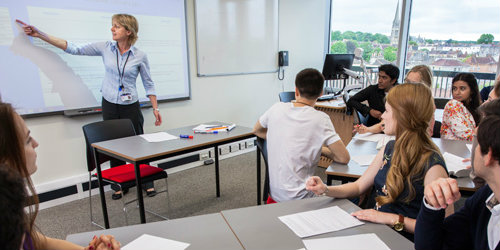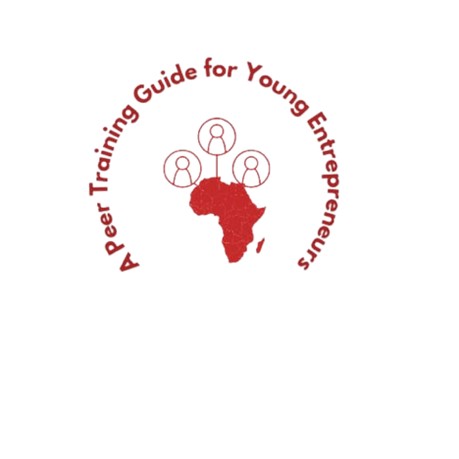Enabling young Nigerian entrepreneurs to thrive
A co-produced peer support, training and mentoring programme for young entrepreneurs in Nigeria is boosting participants’ business success and wellbeing.
The challenge
Wellbeing is foundational to the personal and professional success of all young people. But in low-income countries, including Nigeria, high unemployment and structural inequalities can limit young people’s confidence and access to opportunities. In these contexts, supporting young entrepreneurs can enable them to unlock their potential.
Research impact - Promoting positive change through entrepreneurship
Using an innovative co-production approach, the ESRC IAA-funded Nigeria Young Entrepreneurs programme has created a peer network in Enugu, Southeast Nigeria. The programme empowered young entrepreneurs to start or develop businesses. In low-income countries such as Nigeria, high unemployment, poverty and structural inequalities can prevent young people fulfilling their personal and professional potential. According to the Nigerian National Bureau of Statistics, 63% (133 million) of the national population live in multidimensional poverty. In this challenging context, entrepreneurship can improve socio-economic outcomes and enable business opportunities that build entrepreneurs’ confidence and wellbeing.
Underpinned by the research study, ‘Resilience through International Networks’ (Williams et al., 2021), the ongoing Nigeria Young Entrepreneurs programme, which started in 2022, has comprised of training workshops, feedback sessions, mentoring, investment, networking, and pitch meetings. Designed and organised by a multi-disciplinary team of academics from the University of Bristol, with the support of business experts and creative partners, the programme has had a transformative impact on the lives of its young participants.
Cyprain Arinze, the founder of a growing multimedia venture, reported that the training has altered his perspective on the possibilities of business: ‘The programme changed my mindset about what business or entrepreneurship could be. I was able to see some of the challenges that could actually knock you off-balance during business’. Ogechi Nwonye, the enthusiastic founder of Eco-Cyclers, a waste-management and climate-education organisation, reflected on the programme’s holistic impact: ‘It has helped positively, very generally, in every aspect of my life. I have made something tangible and worthwhile. This has also helped increase my own quality of life financially and economically.’
Integrating knowledge and methods from education, entrepreneurship, sociology, politics, and international studies, the programme lead, Dr Zibah Nwako, and her colleagues at the University of Bristol have established a knowledge-transfer programme informed by contemporary research. Working collaboratively with a small group of 23-to-32-year-old entrepreneurs in Enugu, the research team has created a website raising awareness about the programme, and co-designed a free, open-access training guide suitable for young entrepreneurial start-ups across Sub-Saharan Africa.
The first cohort of young entrepreneurs, who describe themselves as ‘pioneers’ and ‘changemakers’, report that the programme has propelled them towards achieving positive change. Maryjane Ugwuanyi, a participant who has created a clothing brand for women and children, said: ‘When I start [my business] now, I’m going to start on a different level.’
Beyond the programme’s direct impacts on its participants’ lives, it has also contributed to increasing context-specific knowledge about the youth-enterprise sector in Sub-Saharan Africa, and advanced methodology, theory and practice for entrepreneurial ventures in the region. The project’s preliminary findings will be presented in a forthcoming academic paper, ‘Speaking a common language: Young people performing entrepreneurship in Enugu, Nigeria.’
Scaling up impact
Building on the success of the pilot project in Enugu, the next step is to scale up the project and make the training model and resources available to other micro start-ups, small businesses and organisations that support entrepreneurship in Sub-Saharan Africa. This will be achieved through an ‘accelerator’ programme enabling the research team to focus on improving user experiences and extend the project’s geographical reach. In order to sustain the longer-term aims of the programme, a context-specific train-the-trainer model will also be developed.
As the programme evolves, it aims to collaborate with African youth-enterprise organisations; encourage more young entrepreneurs to access the training programme; engage and advance strong stakeholder networks; and influence policy by recommending that the training component is included in the African Technical and Vocational Education and Training (TVET) curriculum within Sub-Saharan education systems.
Underpinning research
High rates of youth unemployment in Nigeria (42.5% according to data from the Nigerian Bureau of Statistics) reflect the significant barriers young Nigerians face in securing employment. Therefore, many young people and recent graduates consider entrepreneurship as a pathway to making a living and improving society. They do, however, encounter considerable start-up difficulties. According to a poll of African business owners, the biggest obstacles to success include a lack of capital, entrepreneurial skills, and business infrastructure (Fal, 2013).
The co-produced Nigeria Young Entrepreneurs programme built on the findings of an earlier study, ‘Resilience through international networks’ (Williams et al., 2021). Williams et al.’s collaborative research project with partner entrepreneurs revealed that the power of peer networks, mutual support, and cohesive communities is an often overlooked, but enabling, element of successful entrepreneurship. To this end, the focus of the current programme on supporting aspiring entrepreneurs, responds to an urgent and encompassing need to develop innovative routes to personal and professional success for young people in low-income countries.
Key information
- Entrepreneurship can transform young people’s outcomes in low-income countries with limited employment opportunities.
- Supporting young entrepreneurs can promote confidence, wellbeing and financial security.
- Enabling young people to build sustainable businesses can offer benefits to the wider community and the entrepreneurial ecosystem.
- Knowledge exchange and collaboration with Nigerian participants enabled the creation of context-specific training resources with the potential to be used across Sub-Saharan Africa.
- The project’s innovative co-production approach has advanced methodology, theory and practice in the youth enterprise sector in Nigeria.
Researchers
Dr Zibah Nwako, Senior Research Associate
Non-academic partners
 Funder
Funder
ESRC Impact Acceleration Account (IAA)
Related research group
Centre for Comparative and International Research in Education (CIRE)
Publications
- ‘A Peer Training Guide for Young Entrepreneurs’ (Nwako et al., 2023)
- ‘Resilience: Doing her business with her full chest’ (blog for Brigstow Institute)
- ‘Resilience through international networks (PDF, 1,427kB)’ (Williams et al., 2021).
Date published
September 2023
 Study Education
Study Education
Join us in improving educational environments for future generations


